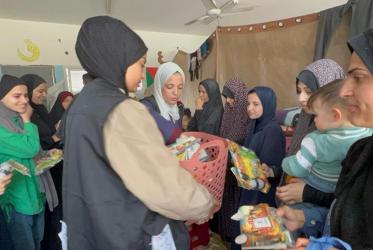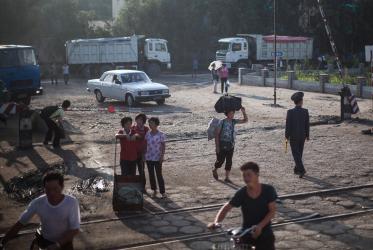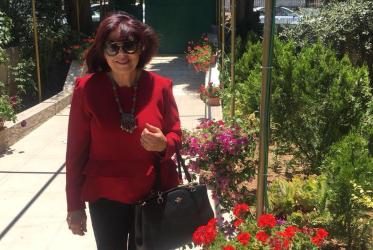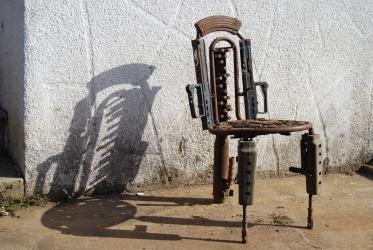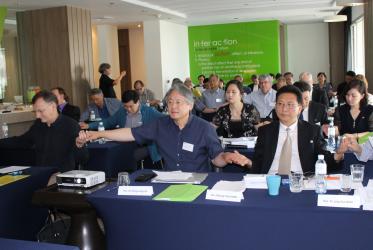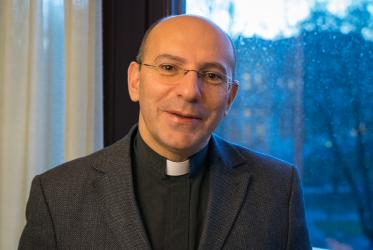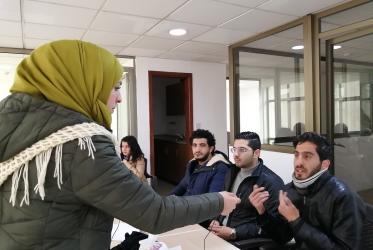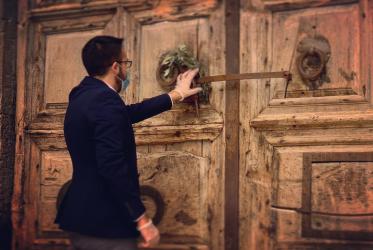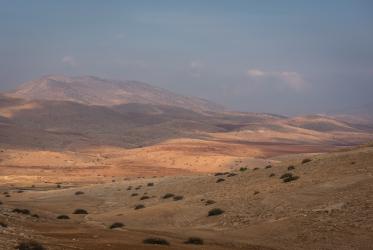Displaying 1 - 20 of 70
21 December 2023
Promoting human dignity through art
06 September 2022
Peace and unity on the Korean Peninsula matters globally
25 February 2021
A hopeful, but not optimistic Palestinian ecumenist
09 December 2020
In a COVID-stricken world, “everyone is important”
23 October 2020
Are migrants seen and heard? Conference presses the question
19 October 2020
Church of South India eco-ministry featured on UNESCO website
17 February 2020
The cry of the Papuans in Indonesia
14 November 2019
